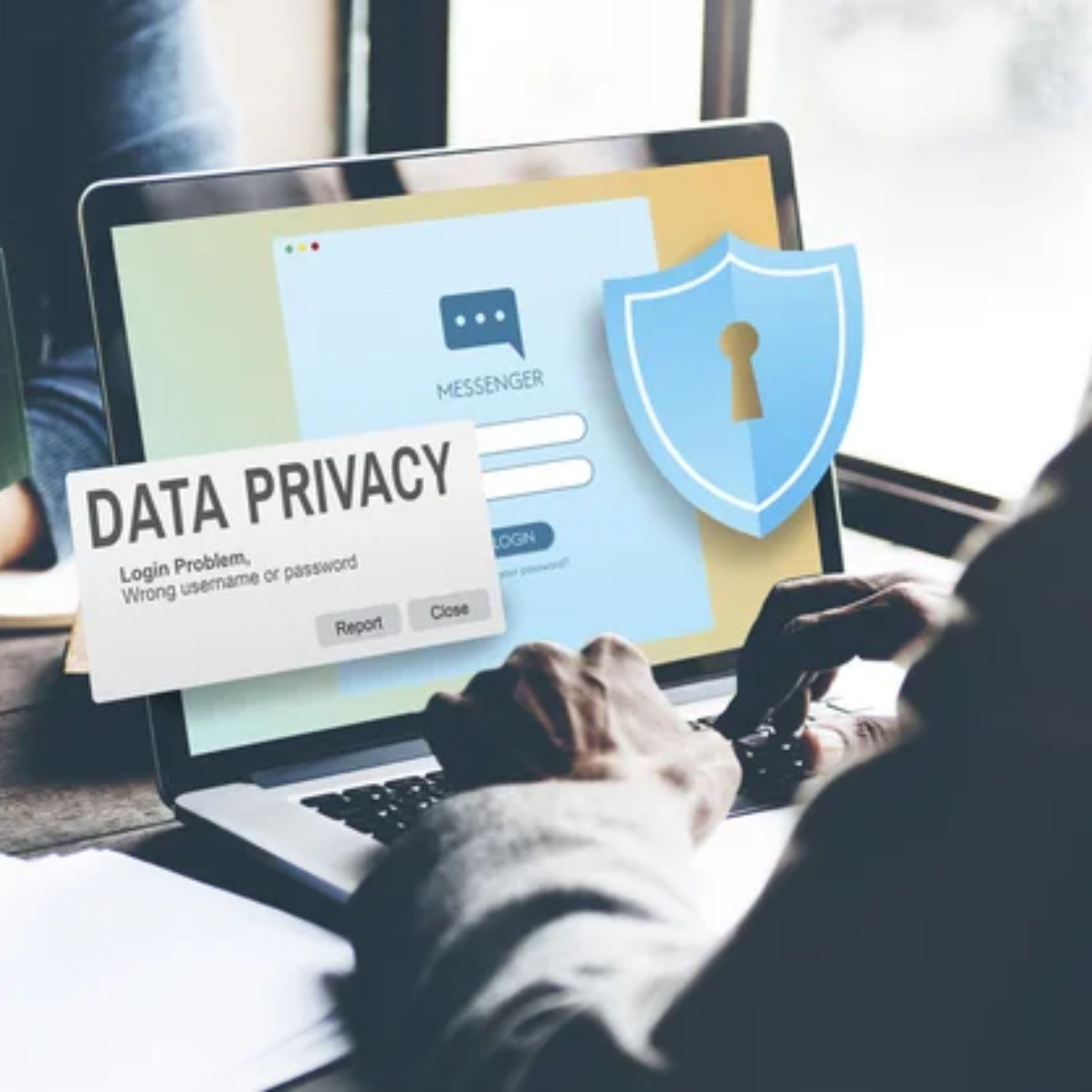Free Consent and its Misuses Under the New Data Protection Law 2023

Data Protection and Privacy Laws are designed to protect the citizens’/netizens’ personal data and information while offering them control over how their data is collected, processed, and used by any organization across the world. These essential laws in India are developed and introduced through the Data Protection Bill and put in place to tackle the growing concern of individuals related to potential abuse, misuse, and unauthorized access and handling of personal data in today’s digital age.
After the declaration of privacy as a basic right by the Supreme Court of India a few years back and getting the President of India’s final and formal approval, the Digital personal data protection law in India has been finally published in the official gazette. It recognizes Privacy and data protection as fundamental human rights. The Bill is intended to protect individuals’ personal data privacy by creating a framework of organizational and technical measures for processing, accessing, and using it.
By creating a regulatory authority, this new data protection act oversees all such activities and takes necessary enforcement action when violations arise. The Act seeks to ensure accountability from entities processing personal data, such as data fiduciaries, data processors, and social media intermediaries. Furthermore, this law limits personal data processing while giving individuals the right to know how and why their personal information is processed. Contact privacy law and cyber security experts @ Cyberra Legal Services to learn more!
What is Free Consent in the Data Privacy World?

Free Consent is an essential element of any contract. As per the new data protection law in India and based on the principle of consensus ad-idem and protecting the interests of both parties involved, free consent helps mitigate fraud, misrepresentation, coercion, and undue influence while helping reduce fraud, misrepresentation, and coercion occurrences. But for any valid and enforceable contract to exist, it must contain all elements of free consent: Voluntary, Knowledgeable, and Informed.
However, Any time any one element becomes invalid, the entire agreement may be null and void. Misunderstandings occur due to a failure of clear communication among two or more parties, leading to arguments and disputes that violate the principle of free consent; it cannot result in contracts being signed if misconceptions or miscommunication exist between the parties involved. Both sides should communicate honestly to avoid miscommunication and promote harmony within the partnership.
As per the law Digital Personal Data Protection Act (“DPDP Act”) states that consent must be voluntary and informed, without coercion, undue influence, fraud, misrepresentation, or mistake impeding agreement. Also, the data owner should obtain unequivocal and unconditional approval before signing a contract. If you are unsure about consent and how it can be used in any agreement (like a Data Protection Agreement, HR Privacy Policy, Customer Privacy Policy, Patient Privacy Policy, etc.), contact our privacy legal and cyber security expert at Cyberra Legal Services and learn everything you need to know about the Digital Data Protection Bill, 2023.
Importance of Free Consent in Safeguarding Individual’s Privacy Rights
Informed Decision-Making
The parties involved in the agreement must understand the purpose of collecting and processing data. The organization must provide transparent information about the actual usage of the data being collected.
Voluntary Consent
Consent should be given voluntarily and should not be coerced in any form. Accessing a service or product should not be required, and the individual should be informed upfront. The New Data Protection Act ensures that all these means are met properly.
Explicit, Unambiguous, and Granularity
It is important to know, understand, and practice consent in its most explicit and unambiguous form. The privacy agreement/privacy policy must be well-informed, with detailed consent about all the clauses rather than obtaining board consent for multiple activities.
Withdrawal of Consent
It’s crucial to know that as per the New Data Protection Law in India, an individual has the right to withdraw any consent without any form of negative consequences and that the organization should immediately stop accessing and processing personal data.
Age of Consent
Although rules may vary as per the different jurisdictions, consent from minors should be specified properly and beforehand. The organization must obtain proper and legal consent from the parent or guardian for processing data related to children.
Free consent is an integral component of any privacy contract/privacy policy. It protects both parties’ interests while validating them in terms of law. Furthermore, it reduces coercion, undue influence, fraud, misrepresentation, and mistakes within an agreement. It has many advantages; however, it may have certain drawbacks as well. To learn more about the techno-legal aspects of free consent, data privacy of an individual, data privacy law compliance for a business entity, and the importance of the New Data Protection Act, get in touch with Cyberra Legal Services now!
Free Consent and Their Possible Misuses
The New Data Protection Act includes provisions that are very similar to global laws such as GDPR and has an expansive definition of what constitutes personal data. However, the Act differs in several key respects, including more limited processing grounds for processing personal data and broad exemptions for government actors. It’s important to note that obtaining free consent is important before processing the personal data of any individual.
Some factors that can compromise free consent include Coercion, Undue Influence, Fraud, Mistakes, and Common Misunderstanding. Coercion refers to any act that forces one party into entering into an agreement via threats, violence, or intimidation, which violates free will principles and thus goes against the principle of Free Consent. Undue Influence refers to exerting power or Influence over a weaker party, such as children, spouses, or people reliant on you for financial support without their permission.
Mistakes are common when creating contracts and can even constitute breaches. Mistakes may come in two varieties – unilateral and bilateral. A unilateral mistake occurs when only one party makes an error that cannot be rectified, while bilateral mistakes happen when both parties commit errors while carrying out the agreement. To cope with such problems, a thorough understanding of the law is a must, or hiring a well-experienced data privacy law expert is highly advised.
Fraud happens when one person lies to another to achieve something or gain something from one person that they wouldn’t have given otherwise. This violates DPDP Act, 2023, and additionally can be punished under various criminal statutes. Get in touch with Cyberra Legal Services to learn more about free consent, how it can be used in or against your favor, and all the latest updates on the Digital Data Protection Bill, 2023.
Some Common Scenarios Where Free Consent Plays a Vital Role
Free Consent of Employees
Employees’ personal data is collected, accessed, processed, and stored in the workplace by the HR team and the management for HR activities, payroll, and performance evaluation. It’s important to know that it should be an informed decision, voluntarily participated, and the employer must provide an opt-in and opt-out option when necessary.
Free Consent of Customers
Businesses and organizations worldwide use personal data about their consumers for various objectives, including marketing, customer service, transactions, and research and development. It is critical that they explicitly tell the client of the objective of data collection and acquire consent before processing their personal data.
Free Consent of Patients
The healthcare industry deals with highly sensitive data and information of their patients, and this requires careful handling. Not only should the data accessed and processed be kept safe and secure, but the organization must also ensure that it is never leaked or used for malevolent purposes in any way.
Misuses of Consent under Digital Personal Data Protection Law

Overbroad Consent
It involves requiring a covered or blanket consent for different purposes without being clear with the actual purpose, leading to an overuse of an individual’s personal data.
Inaccessible Withdrawals
Inaccessible withdrawals make it nearly impossible or difficult to end or withdraw an individual’s consent. Per the New Data Protection Law in India, consent withdrawals should be easily processed.
Hidden Clauses
Agreements should be transparent and clear to individuals. However, including hidden or unclear clauses in consent forms may misguide the individual and make them sign for something they don’t understand.
Third-party Sharing
Third-party sharing is a form of misuse that many organizations practice. It means that the data collected by an organization is shared with a third-party company without an individual’s consent.
Excessive Data Collection
Often, collecting more data than an organization is authorized to lead to the excessive data collection scenario. This may create legal issues and violate the principle of Data Minimization.
Non-compliance with Choices
The choices made by an individual in the consent forms should be respected and considered. If an organization manipulates or ignores the options. It’s a misuse of consent.
Continuous Tracking and Profiling
The misuse of consent occurs when the consent is obtained for one specific purpose but used for different purposes, like continuous tracking and profiling activities, without individuals being fully aware.
Consent as a Condition
Requiring consent is mandatory. However, demanding it from individuals so that they can use the product or service is not the proper use of consent. It should be a free choice, not a conclusion.
Children’s Consent
Special care must be taken when minors or children are involved while handling and processing their data. Consent of their parents or guardians is necessary in such cases.
Conclusion
The new Personal Data Protection Law in India recognizes Privacy and data protection as fundamental human rights. The DPDP Act 2023 is intended to protect individuals’ personal data privacy by creating a framework of organizational and technical measures for processing it, creating a regulatory authority to oversee such activities, and taking necessary enforcement action when violations arise.
The concept of free consent and its varied applications form a critical foundation that ensures an individual’s privacy rights and that this is being appropriately controlled. While misuse of free consent is crucial and should be dealt with with the utmost clarity, the Personal Data Protection Law in India is designed to address such scenarios and help individuals have their basic rights in place.
Understanding the concept of free concept and its awareness is essential in this modern age of digitization. Contact Cyberra Legal Services right now. We specialize in cyber laws, data privacy laws, and cyber security consulting. Book your appointment with us now!


